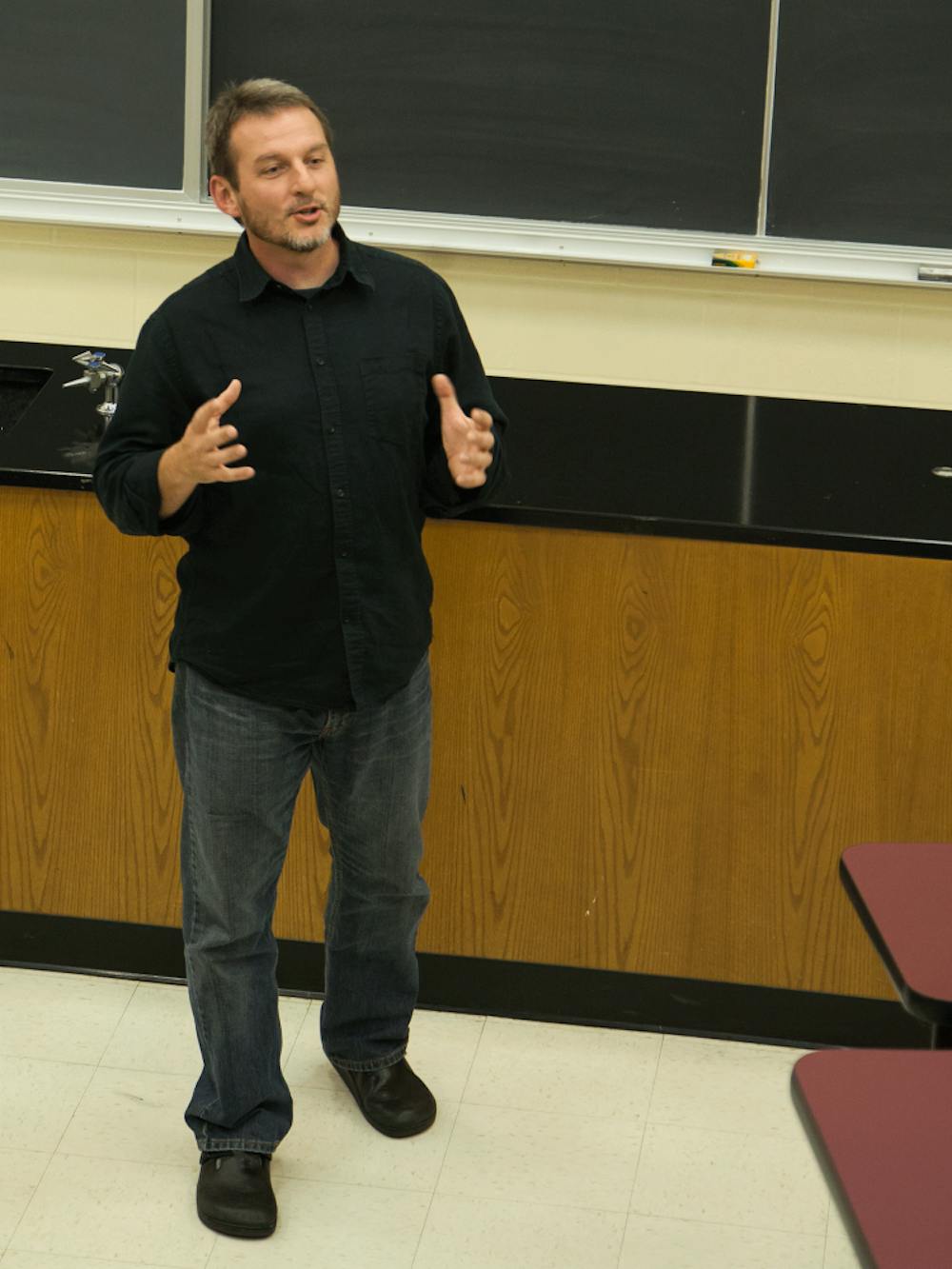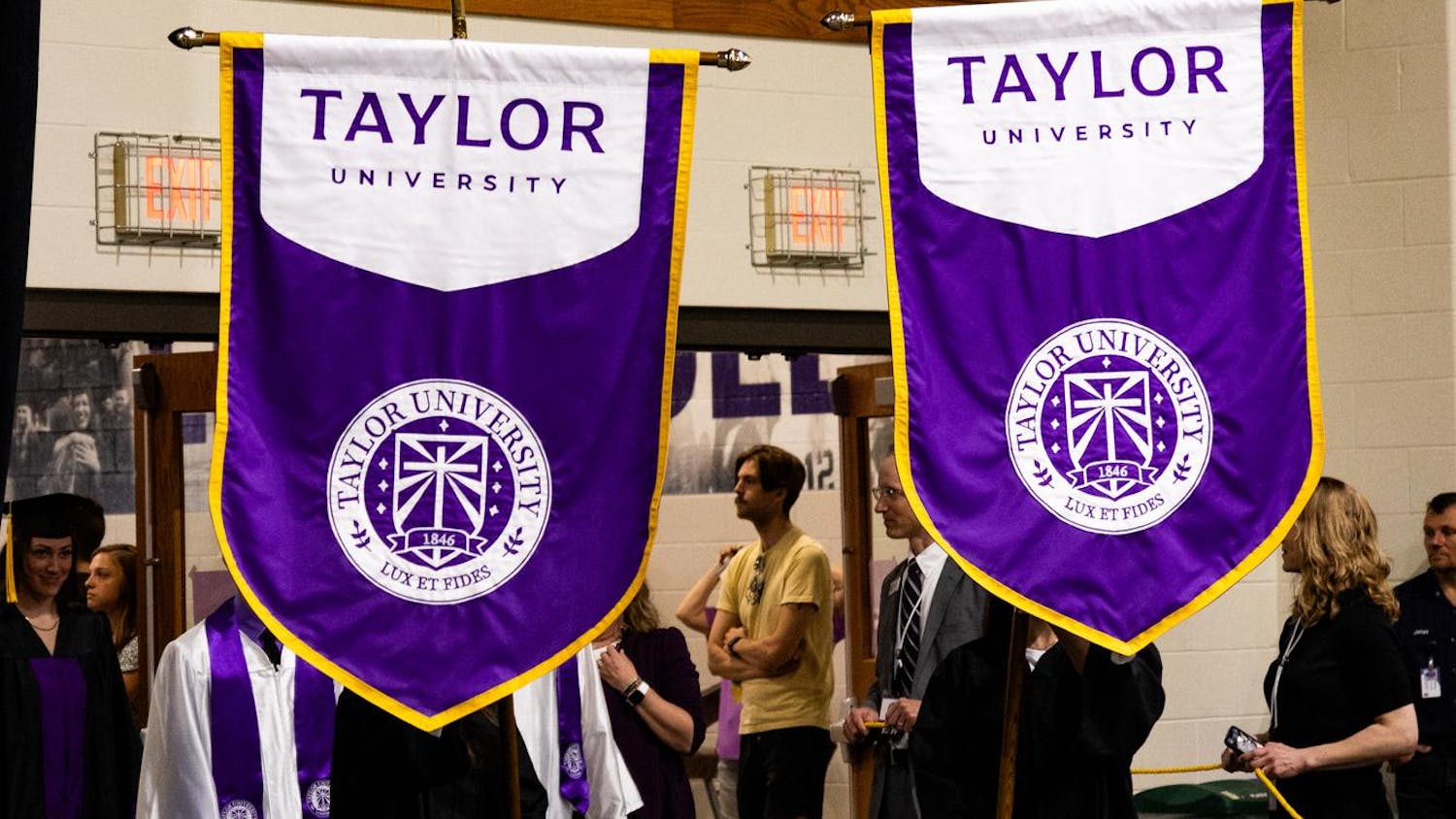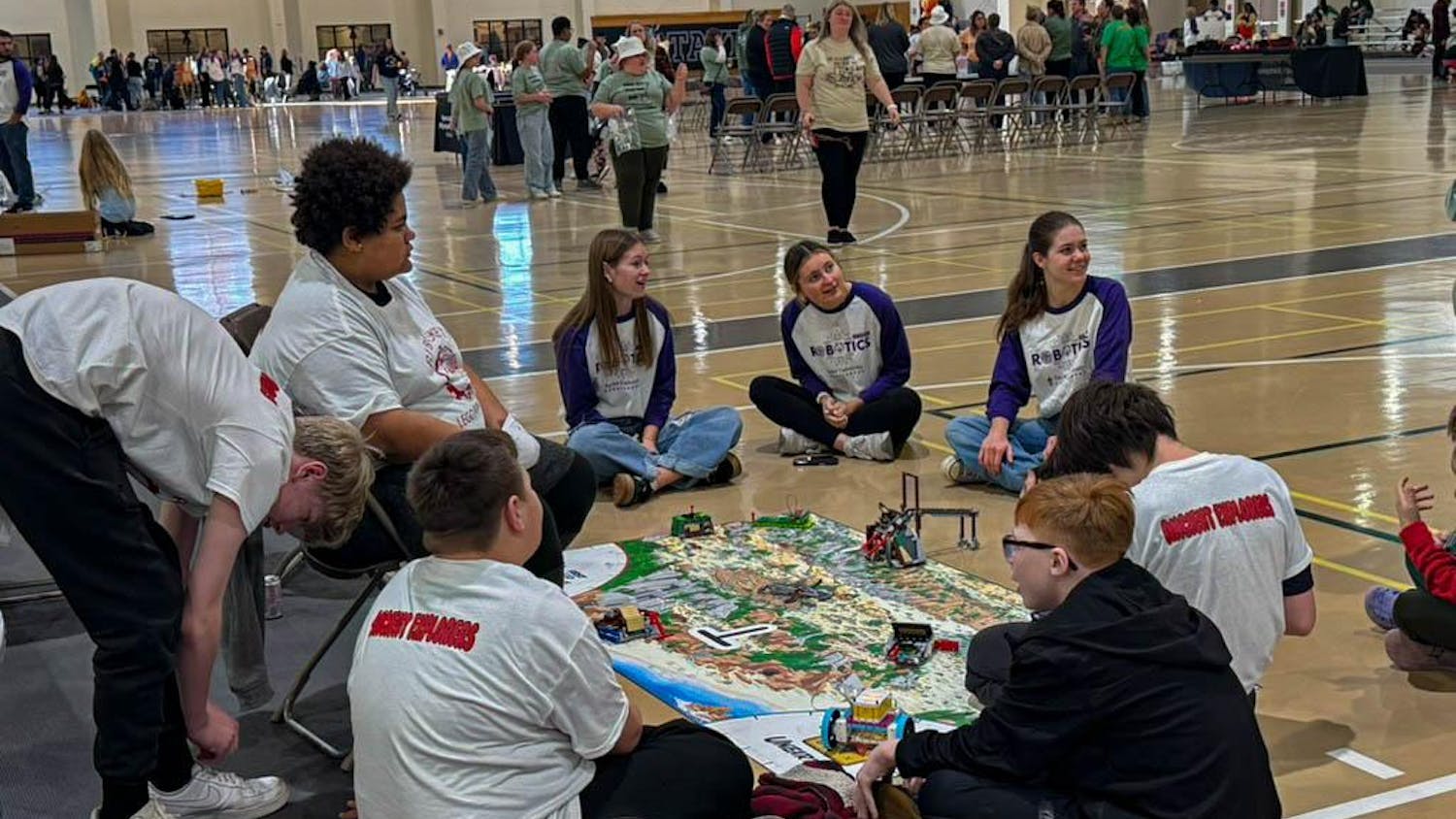Leah Murphy | Echo
Say farewell to reading "Brave New World" in Foundations of Christian Thought and laughing at Professor Cosgrove's axe-murderer jokes. Most of the course curriculum and format have changed.
After 30 years, Mark Cosgrove passed the baton to professors Jeff Cramer, Matt DeLong, Kevin Diller and Scott Moeschberger. According to Diller, philosophy and religion professor, "You can't do that class and not be Dr. Cosgrove." Therefore, the updated class is titled "Foundations of the Christian Liberal Arts."
These four professors have split the class into four rotating groups of roughly 115 students. Mondays and Fridays are lecture days and Wednesdays are discussion-based.
For one class requirement, students choose a novel from a given list and write a report on how it relates to to the meaning of being human. Each professor also has other readings, as well as a theme book for his section of the curriculum.
Students are required to watch three of the following four movies: "Gattaca," "Les Miserables," "Hotel Rwanda" and "The Tree of Life." Several guest speakers will address the class throughout the semester, such as media communication professors John and Kathy Bruner, who will teach the students how to think critically about film. Nancy Dayton, chair of the English Department, is also coming to help the students review books.
The course encourages students to think theologically and live a Christian life in a right relationship with God, creation, neighbors and self.
All four professors are preparing the students to get everything that they can out of other classes. The course allows the students to get an understanding of why a liberal arts education is valuable.
The focus of Diller's lectures is God himself. He teaches that "all life is an act of worship." The theme book for Diller's section is "Delighting in the Trinity" by Michael Reeves. Discussions focus on the book and on what is good and true in the world.
"My goal is to help students get excited for and maximize their Taylor experience," Diller said. "Their other classes are not just hoops to jump through. I want them to see God in things they are not usually excited about." Diller challenges students to engage in all courses this way.
DeLong, a mathematics professor, also teaches from Diller's perspective: "It's not what can this do for me, but what can this do to me?" DeLong's focus is creation and how we live in it. He asks questions like, "What are people? Why am I here? What's the point of creation?"
Some students have a shallow understanding of theology. He hopes to deepen their knowledge through lectures and his theme book "The Idea of a Christian College" by Arthur F. Holmes.
"Their own transformation is part of God's project-becoming the person God created them to be," DeLong said.
Moeschberger, Honors Guild director and assistant professor of psychology and MAHE, is teaching about what it means to reconcile with others. Taylor is known for its intentional community. However, this community can only exist if there is respect between the faculty and students. He is using the book, "The Sunflower," by Simon Wiesenthal to support his lectures.
Cramer, a computer science professor, instructs students on their personal lives and how they interact with the world. His section's book is "The Practice of the Presence of God" by Brother Lawrence. He urges the students to ask, "What is human flourishing? What do the liberal arts have to do with that? What does it mean to be human?" He says that the "liberal arts are a means of delving into flourishing."
"It has been a challenge, but an honor to take over this course," Cramer said. His hope for the year sums up the new class.




